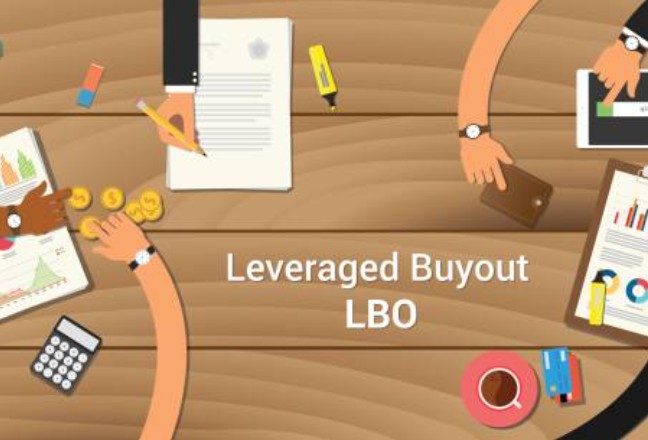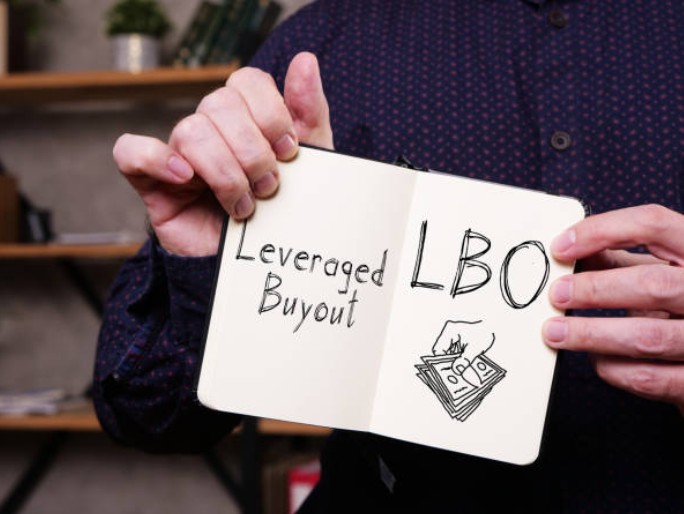The Buzz Around Leveraged Buyouts: What Does It Mean?
In the dynamic world of finance and business, terms like “Leveraged Buyout” (LBO) can often sound like jargon reserved for corporate boardrooms and Wall Street moguls. But what exactly does it mean? Why should you, as a small business owner in the United Kingdom, care about it? Let’s explore the concept in a way that will break it down for you, step by step, and give you all the essential details.
What’s the Definition of a Leveraged Buyout (LBO)?
A leveraged buyout is when a company is acquired using mostly borrowed money, often backed by the assets of the business being bought.
The idea is that the buyer can use the cash flow or future profits from the acquired company to pay off the debt over time.
But how exactly does this process unfold?
How Does a Leveraged Buyout Work? Unpacking the Process
Grasping the financial structure is essential when analyzing a leveraged buyout. Let’s break this process into bite-sized chunks:

1. Identifying the Target:
- What qualifies a company for a leveraged buyout?
- Stable cash flow: The company should generate reliable income to support loan repayments.
- Undervalued assets: If the business owns valuable assets (such as real estate or equipment), these can act as collateral.
- Low existing debt: A company with little or no debt allows room for new borrowing.
2. The Funding Mechanism:
- How is a Leveraged Buyout funded?
- Debt Financing: Much of the funding comes from loans, bonds, or credit lines.
- Equity Contribution: The buyer also uses some of their own money or equity to help with the purchase, though the debt portion is usually much larger.
3. The Acquisition Process:
- How does the actual acquisition happen?
- The buyer (often a private equity firm or a wealthy investor) purchases the target company using a mix of debt and equity.
- The deal is typically structured with a small equity contribution and a larger debt portion.
Why Do Companies Engage in Leveraged Buyouts?

You might be wondering, “What’s in it for the buyer?” In essence, there are several key reasons why an LBO could be an attractive strategy.
Potential for High Returns
- Higher return on equity: By leveraging debt, the buyer amplifies potential returns. Even a small growth in the business can yield large profits.
- Incentivising management: Often, the management of the acquired company is given a stake in the business, which encourages them to work harder to ensure its success.
Creating Value
- Cost efficiency: After the acquisition, the new owners may implement cost-saving measures or restructure the company to improve profitability.
- Asset stripping: In some cases, the buyer might sell off non-core assets to raise cash or improve efficiency.
What Are the Risks of Leveraged Buyouts?
While the potential for high returns is appealing, the risks associated with LBOs are significant. Let’s take a look at the main concerns for both the buyer and the target company.
1. High Debt Burden:
- What if the company can’t meet debt obligations?
- If the company fails to generate enough cash flow to service the debt, it can lead to bankruptcy or the forced sale of assets. This poses a significant threat to both the purchaser and the company being acquired.
2. Management Challenges:
- Can the management team handle the pressure?
- Managing a company with a heavy debt load can be challenging, especially if the operational changes lead to internal disruption. A shift in company culture can also occur during the transition.
3. Interest Rate Sensitivity:
- How does the fluctuating interest rate impact the deal?
- Since much of the deal is funded by debt, rising interest rates can significantly increase the cost of servicing that debt, leading to financial strain.
Is a Leveraged Buyout a Suitable Strategy for Small UK Businesses?

Now, let’s consider whether small UK businesses should be concerned about LBOs.
Should Small UK Businesses Be Open to LBOs?
- Is an LBO an option for small businesses?
- For smaller businesses, LBOs may not be as common because they often lack the financial stability or assets that make them appealing targets. Some private equity firms focus on buying and restructuring smaller businesses.
- What should small business owners know?
- While LBOs typically involve larger corporations, understanding this strategy can help small business owners prepare if they ever decide to sell. It’s also important to note that private equity firms might approach small businesses that show growth potential, especially in niche markets.
A Real-World Example: The Virgin Media LBO
A key UK leveraged buyout was the purchase of Virgin Media. In 2006, Northeast Communications acquired Virgin Media for £2.5 billion, leveraging large amounts of debt in the process. The deal was a classic LBO—enabling Virgin Media to scale up while the acquirer took on significant risk with the debt portion.
What Are the Key Takeaways for You, the Small Business Owner?
As a small business owner in the UK, what can you learn from this strategy? Here are some important insights:
- Understand the market: Keep an eye on private equity firms and how they’re operating in your industry. A leveraged buyout (LBO) can serve as a profitable exit strategy when the right circumstances present themselves.
- Financial health matters: Whether you’re considering an LBO or just aiming to grow your business, maintaining healthy cash flow and minimizing debt is crucial for sustainability.
- Stay aware of the risks: It’s essential to understand that while the potential for high returns is tempting, the risk of excessive debt can be a huge burden if things don’t go as planned.
Final Thoughts
A Leveraged Buyout (LBO) is a high-stakes strategy that can result in significant rewards, but it comes with substantial risks. For small business owners, it’s essential to understand the dynamics of LBOs, whether you’re considering one as a buyer or as a potential seller. By keeping your company financially stable and being aware of the potential for private equity interest, you can better prepare for the future. Remember, even if LBOs are more common in large corporations, small businesses should always keep an eye on evolving market trends. There’s no telling when you could unexpectedly become the next victim.
Quick FAQs: Leveraged Buyouts
Can small businesses be involved in LBOs?
Yes, especially if they show strong growth or have valuable assets.
What’s the key difference between an LBO and a standard buyout?
LBOs use more borrowed money, while standard buyouts rely more on buyer equity.
What happens if the debt isn’t repaid?
The business may face asset sales, restructuring, or even bankruptcy.
Are LBOs good for management teams?
Often, yes—many gain ownership stakes, aligning incentives for success.

Leave a Reply